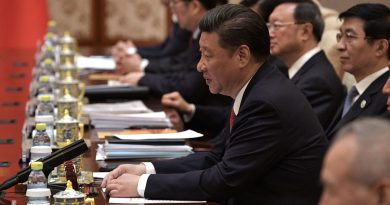Cyprus and Greece Agree on a Subsea Electrical Cable
Cyprus and Greece Agree on a Subsea Electrical Cable
Karissa Kromminga
Staff Writer
On September 17, Cyprus approved the construction of an undersea electricity cable that would connect its energy grid with Greece. The project is called the Great Sea Interconnector and would be the world’s longest and deepest undersea energy cable, and aims to connect the power grids of Greece, Cyprus, and eventually Israel. Cyprus’ Minister George Papanastasiou stated that the project would be supported by the European Union’s investment of 657 million euros, as well as Cyprus’ contribution of 25 million euros annually over the 5-year period of the cable’s construction. The total 125 million euro sum will come from revenue generated by the European Union’s (EU) carbon trading program. This will help to alleviate the cost of the cable’s construction from Cypriot taxpayers. Officials said that the project will carry a guaranteed return on investment of 8.3 percent, this has attracted potential investors such as the United States and the United Arab Emirates TAQA energy and water company, ABC reports. Cyprus is also considering becoming a stakeholder in the parent company that is running the cable after its completion.
Officials say that the 900 km long cable would eventually be extended to Israel, which would connect the European energy grid to that of the Middle East. According to the Associated Press, “France’s Nexans is building the cable and Germany’s Siemens will be contracted to build the onshore transformers.” The cable’s course has been mapped out, but more surveying will be needed in areas where trenches may need to be built to protect the cable.
This project will help to modernize Cyprus’ energy grid, which is still almost entirely reliant on oil. Their energy costs to consumers are considerably more than their counterparts in Continental Europe, due to untapped natural gas reserves. Euractiv writes that the ministries of Greece and Cyprus stated, “This is a project of strategic importance for Cyprus, Greece, and the EU since it will link Cyprus to the electricity network of Europe, facilitating its energy transition and the aim of Greece to be a conduit of clean energy.” Cypriot Energy Minister, Natasa Pilides called the project the “cornerstone” of Cyprus’ transition to a green economy that will not only protect the environment but also foster economic growth, according to the Greek Herald.
However, despite optimism, concerns have arisen that third-party intervention could cause issues for the construction of the cable. Cyprus raised concerns and sought clarity over what would happen in the case of “geopolitical risks”. According to Reuters, “the ambitious project touches upon a complex patchwork of overlapping jurisdiction claims between Greece, Cyprus, and regional rival Turkey in the Mediterranean.” There are areas of the continental shelf that Turkey has claimed as its own, which would require prior consent to be given. This opposition could lead to delays and additional costs. In June, Turkey sent naval assets to shadow a ship carrying cable-related survey work near a Greek Island. They have occasionally obstructed ships off the shore of Cyprus which were tasked with gas surveys, as well.
Ultimately, the project is expected to be completed in 2029, costing roughly 1.9 billion euros and will help to reduce energy bills and energy isolation within Cyprus.
Image courtesy of Getty Images

